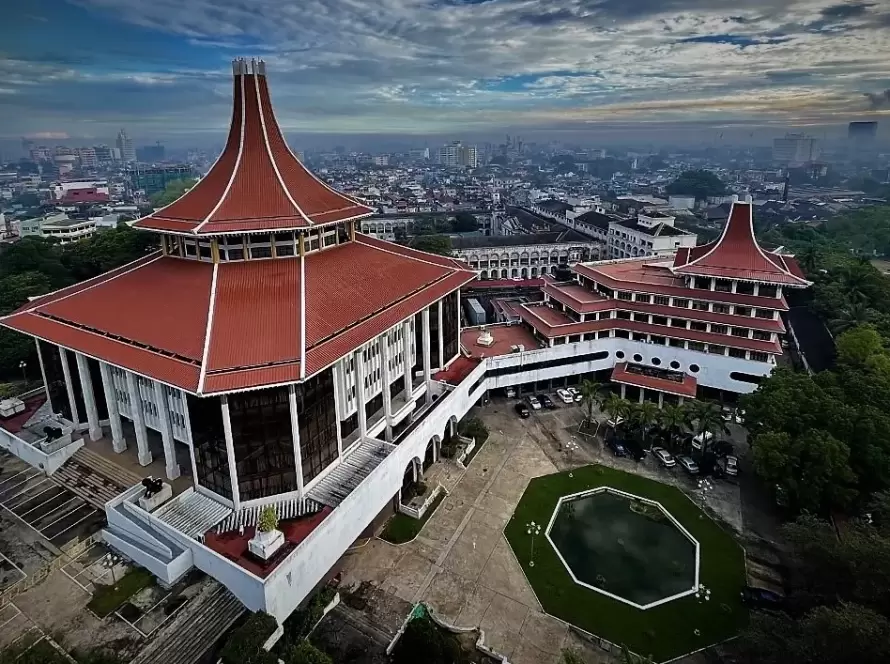By Kividi Koralage
Thailand, an emerging economy that has experienced various challenges in adopting a foreign policy in the contemporary world, over China’s rise in power and civil unrest in Myanmar, has remained committed to a policy of economic diplomacy.
Thailand’s foreign policy has been described as “bamboo diplomacy.” This policy has assisted the country in navigating the region’s difficult challenges over the last few decades.
Thai foreign policy is based on membership of multilateral institutions such as ASEAN and the United Nations. These organizations have been critical in identifying and addressing global concerns such as fostering peace and economic prosperity. Thailand prioritizes excellent ties with its neighbors, regardless of size or political system. It considers “good neighborliness” as a key criterion of international relations.
Economic diplomacy is an essential aspect of Thai foreign policy, since the country utilizes foreign policy to promote economic interest and generate chances for Thai firms, which helps them develop. It is an emerging trade nation, and its foreign policy aims to increase market access while encouraging international investment.
Since of late, but also for quite some time, Thailand has prioritized sustainable development. Its motive here is to develop the economy in a sustainable manner, which preserves the environment and improves quality of life. They also collaborate with governments to solve global issues like climate change and poverty.
There have been shifts in this approach over the last few years. Despite the present conflict in the global order, Thailand is moving toward a hedging-by-default approach. Underlying the causes for the following mechanism may be the following.
First, the present administration’s policies are driven by various variables, following their orientations, and logics, including the rise of major powers in the region. Second, Western sanctions, imposed in 2014, altered the country’s thinking to a Thai-centric strategy. Third, Thailand remains a participant in the Belt and Road Initiative (BRI).
Through Chinese investments, the administration hopes to enhance Thailand’s economic standing and establish the Eastern Economic Corridor.
Thailand, like many other ASEAN members, is skeptical of US strategic commitments to the East Asian area. Biden’s statement about “a new era in US-ASEAN relations,” the US has neither invested in the area nor rejoined the Comprehensive and Progressive Agreement for Trans-Pacific Partnership (CPTPP), from which Trump withdrew in 2017.
The Indo-Pacific Economic Framework, which Biden is unveiling, is not a free trade pact or an accord that would allow ASEAN members to access US markets.
Ancient narratives about Thailand’s bamboo diplomacy are no longer a shifting configuration of power that arose in the early 1970s and is a tactic that appears to function, especially given Thailand’s proxy relationship with China and the Soviet Union. The latest bamboo diplomacy is viewed as a strategy to support the existing status. As an emerging economy, Thailand is proactively reacting to global and regional transformations.
When addressing Thailand’s foreign policy difficulties and prospects in the twenty-first century, one definitely needs to reflect on China.
The advent of China has altered the Asian power narrative, forcing Thailand to reevaluate and adjust its interactions with key countries. Another factor is Myanmar. The prolonged violence in Myanmar has called into question Thailand’s foreign policy, as a country that has attempted to strike a balance between democracy and human rights.
Notwithstanding these obstacles, the country has seen some chances to enhance its foreign policy objectives in the ever-changing global landscape.
Thailand experiences competitive advantage from being a part of ASEAN, which is growing increasingly important in both regional and international affairs. In addition, Thailand participates in the Regional Comprehensive Economic Partnership (RCEP), the biggest free trade agreement globally.
These perspectives may be useful when identifying strategic choices and policy suggestions to assist the country, in understanding and navigating the dynamic geopolitical and geoeconomic environment that is still evolving.
First and foremost, it is critical to enhance democratic institutions. Major stakeholders agreed that democratizing Thailand is critical to the country’s economic, technical, and social progress. This highlights the need for law enforcement and constitutional reforms, as well as more effective budget relocation, openness, and accountability.
Furthermore, measures should be enacted to improve economic prosperity and technical advancement; participants should recognize that the digitalization of the economy would stimulate technological progress while narrowing the social inequality gap.
It is also critical to investigate technology breakthroughs in the tourist and agriculture sectors of the economy because they may help build a new vision for economic success and function as a catalyst for economic growth and development while improving infrastructure and energy availability.
Following that, major stakeholders should agree that in order to mitigate the consequences of climate change on the sector, Thailand must expand in a sustainable manner. This will aid the country’s adaptation to natural calamities and climate change.
With enhanced disaster response plans and climate infrastructure adaptation, the impact on financial losses and hazards for the agricultural, health, and tourism industries will be decreased. Thailand should diversify its energy sources as well.
In this regard, Thailand should further “proactivate” its foreign policy in order to build stable internal political dynamics. It should adopt significant ASEAN subjects and efforts and exploit its membership for the country’s economic well-being.
Foreign policy should play a key role in engaging MNCs and private sector participants through lobbying and constructive interaction. That should properly evaluate the geopolitical ramifications for a balanced approach.
Thai foreign policy no longer sways with the wind, with Thailand collaborating with China to achieve economic gains as a developing bipolar world dominated by Sino-US antagonism. Thailand looks to hedge with big countries that lack a strategic position in order to balance power between dynamic powers, hedging by default.
Because of the geopolitical difficulties in the Indo-Pacific region, the Thai government should find a shoulder to lean on and adopt some form of a middle path. Without engaging strategically to spur economic growth, it will face a challenge in establishing ties with large countries involved in the present geopolitical struggle.
Kividi Koralage is a graduate of ECU Sri Lanka majoring in International Business. She is currently reading for her LLB and following an international relations program at the University of Aberystwyth in the UK. She is also a CIMA passed finalist and a past student of the BCIS in Colombo. She can be reached at kivikoralage345@gmail.com.
Factum is an Asia Pacific-focused think tank on International Relations, Tech Cooperation, and Strategic Communications accessible via www.factum.lk.
The views expressed here are the author’s own and do not necessarily reflect the organization’s.


